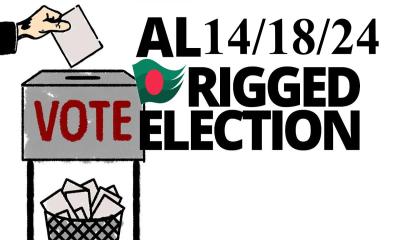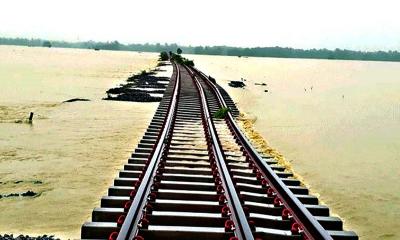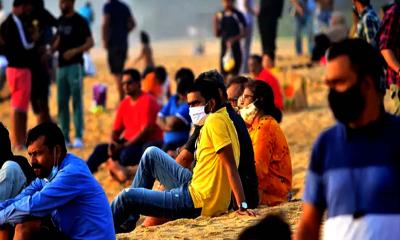There are currently 237 bars in the country, in the names of 177 organizations. Of these, 123 are hotel bars, 62 are restaurants, 48 are clubs, and four are resorts. The first bar approval in the country was given in 1959 following the legal process. This bar was approved in favor of Agrabad Residential Hotel Limited in Chittagong. After that, 88 organizations received approval to open bars in the 56 years until 2015. The remaining 89 organizations received approval in just eight years!
A review of the data shows that the then government has become a 'Dildariya' in granting bar approvals since 2016. The highest number of bars in the country was approved in 2019, 30. Of the rest, 9 were approved in 2018, 8 in 2020, 3 in 2021, 20 in 2022, 20 in 2023, and four bars have been approved this year.
The policymakers of the Awami League government did not hesitate to change the laws and regulations to allow party leaders and activists to open bars. It was found that according to the Narcotics Control Act 1990, the sole authority to issue bar licenses was in the hands of the director general of the agency. In this case, clearances from various agencies had to be obtained after several stages of verification. But in 2018, this law was amended and the Narcotics Control Rules were made.
- First liquor bar was approved in 1959
- In 57 years, 88 establishments received approval
- Last eight years, 89 establishments received approval
- AL leaders have bars in almost every district
In Section 5 of the rules, the issue of government approval was added for bar approval. Since the Narcotics Control Department is an institution under the Ministry of Home Affairs, the then Home Minister Asaduzzaman Khan Kamal used to issue departmental no objection certificates (NOCs) on behalf of the government.
If he gave a clearance to someone, the department did not have the power to cancel or withhold it. After the approval power was transferred to the Ministry of Home Affairs, a maximum of 30 bars were approved in the country in 2019. Only the Renaissance Hotel in Gulshan under the Premier Hotel Company has been given approval for seven bars. Dr. H.B.M. Iqbal, a former Awami League MP, is associated with the management of these institutions.
Officials of the Narcotics Control Department claim that when they were under the control of the Director General, they used to approve bars after much scrutiny. But after the ministry was involved in the approval process, the power of the department was reduced. The number of bars has been increasing since 2018. Basically, since that time, approval of bars started without scrutiny due to political considerations. In many cases, local leaders of the Awami League are running bars without the approval of the department.
Most of the bars are owned by Awami League people: A look at the documents shows that most of the liquor bars approved across the country in the last 10 years are in the names of Awami League MPs-ministers-leaders and their relatives or close associates. There are also bars in the names of pro-Awami League businessmen and officials.
Among them, there are at least 5 liquor bars in the capital Dhaka, Rangpur, and Narayanganj in the name of Muktar, a close associate of Maya Chowdhury and former Home Minister Asaduzzaman. Even though Muktar fled to the United States after August 5, business is going on in his bars. Muktar's bars include Uttara's Kingfisher, Lakeview, Cafe Celebrity, and Korea Bangladesh Club.
The owner of the capital's Doreen Hotel and Resort is Awami League's two-time MP Tahjib Alam Siddiqui. The owner of Plan-B Restaurant is Awami League leader Syed Saad Zaman. Chittagong's Well Park Residence Bar was approved in 2016. Its owner is Abduch Salam, treasurer of Chittagong Metropolitan Awami League. The Capital Recreation Club Bar was approved by Awami Ghensha Abul Hasan.
The managing director of Farzi Cafe is Awami League leader Rashedul Hasan Chowdhury. In addition, the Haldi Restaurant and Bar established in Demra in the capital was approved by local Awami League leader Delwar Hossain. The owner of Campfire Restaurant in Uttara is Mamun Sarkar, organizing secretary of Dhaka Metropolitan North Jubo League.
He got the approval for the bar in the name of this restaurant in 2023. However, the name of someone named Sohel Ahmed was used during the approval. Alam Ahmed, advisor to the central committee of Bangladesh Krishak League. He has several bar licenses in his name. 7 bar licenses were obtained in the name of their own company Hotel Habib International.
The ‘Bhawal Resort and Spa’ center, which was built by occupying government forest land under the invisible power of former IGP Benazir Ahmed, also has a bar approval. The bar approval was granted to that resort on January 9, 2019.
A search of the documents shows that many people have obtained bar approval in the last 10 years, hiding their names in various processes. It has been seen that various social organizations have been created in the name of that organization or business organizations have been created in favor of that organization and obtained bar licenses. If there is any problem in these bars, the committee is changed.
One of them is Bangladesh Club. In 2018, a liquor bar approval was obtained in favor of this club. The list of founding members of this club includes former mayor of Dhaka North City Corporation Atiqul Islam, former IGP Benazir Ahmed, businessman Shafiul Islam, and senior government officials and businessmen during the Awami League era.
In addition, using political power, a club called Dhaka Boat Club was established in 2021 and a bar approval was obtained there. Information says that many established businessmen who were elected by the business associations on behalf of the Awami League panel at different times have also taken approval for liquor bars.
When asked, Additional Director of the Narcotics Control Department, Mujibur Rahman Patwari, said, "Those who gave approval to the bars at that time can tell in detail how they gave it. I do not want to comment on this matter. It would not be appropriate to do so."
When asked, Deputy Director of the Narcotics Control Department, Dhaka Metro South, Manjurul Islam, said, "A 226-page rule has been made in the context of the Narcotics Control Act-2018 to control liquor bars. The bars are operated and regulated according to that rule. However, if there is a violation of the law anywhere, we take action there. Recently, we fined one bar 50,000 taka and suspended the license of another for a month. I cannot say why the bar approvals suddenly increased. The person who was in charge at that time can tell how he gave it.’
On general matters, Director General of the Narcotics Control Department, Khondaker Mostafizur Rahman, said, ‘I have been in charge here for seven months. In these seven months, not a single liquor bar has been approved. Apart from this, our field level officers monitor these. If any irregularities are found anywhere, we take action, and the license of the bar is also canceled. We will monitor the issues. If any irregularities are found anywhere, action will be taken after looking at the damage.’
Society and crime researcher and teacher at the Institute of Social Welfare and Research, Dhaka University, Dr. Touhidul Haque said, ‘There is no place for liquor bars in the place of cultural and religious values of our country. However, approval of clubs is taken for the sake of conducting social and cultural activities. Those who have money and are ambitious, make the law enforcement forces happy or part of the distribution and get approval for liquor bars there.
Not only is alcohol consumed there, but various modern drugs are also consumed. "Extramarital affairs originate from these clubs. It has a negative impact on society. However, in the global situation, there is a demand for people. Therefore, after these bars are approved to meet the demand, there should be strict monitoring by law enforcement agencies. Then the current environmental situation may change."





